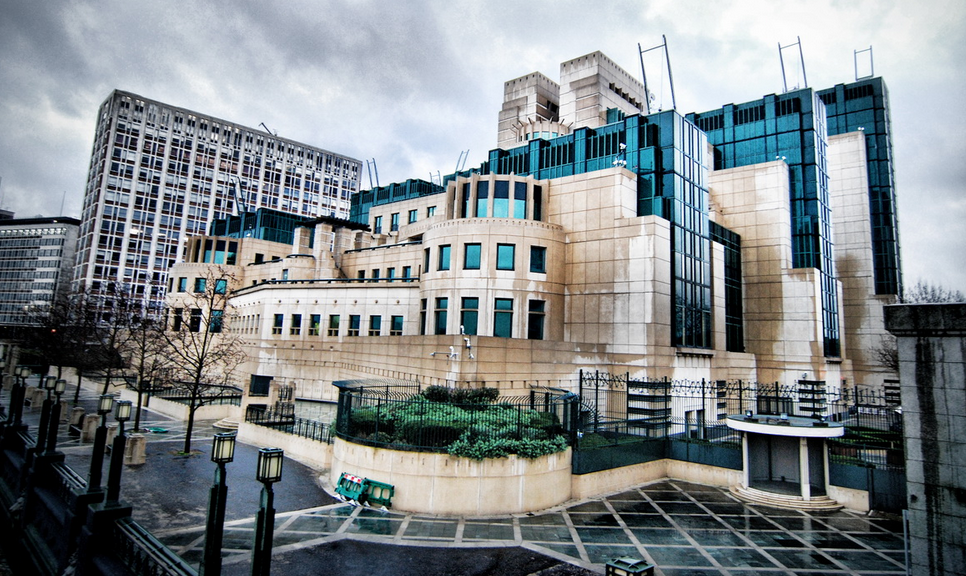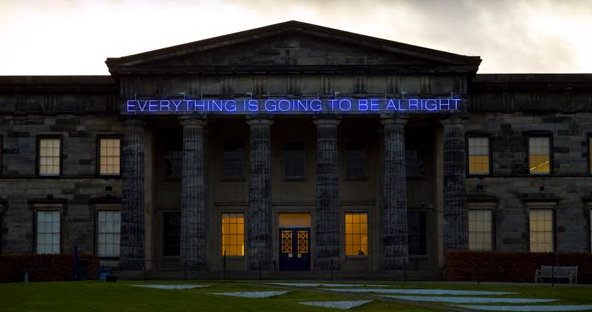Pol Clementsmith on why the rule of thumb overrides the rule of law in the latest revelations surrounding the illegal activities of our snooper secret services.
The UK government has conceded that it may have breached the European Convention on Human Rights (ECHR) by secretly intercepting legally privileged communications between lawyers and their clients. This intelligence gathering, by our unelected security services, which has been going on since 2010, might also have been used to prepare the government’s own legal defence against the very people who are suing them.
Lawyers for a Libyan politician, Abdel Hakim Belhaj, who was abducted in a joint operation by the CIA and MI6 are currently suing the UK Government over his rendition back to Libya in 2004. Belhaj and his wife, Fatima Bouchar, were secretly flown to Tripoli, along with Sami al-Saadi and his family, where they were tortured by Muammar Gaddafi’s security services. It is also believed that British intelligence officers took part in these interrogations.
The government’s concession, which is as damaging as it is embarrassing, follows on from another investigation by the Investigatory Powers Tribunal (IPT) who recently concluded that the regulations covering the retrieval and retention of our private emails and phone conversations, intercepted by the US National Security Agency (NSA) and by Britain’s communications intelligence agency (GCHQ), were also a breach of our right to privacy.
The civil liberties group Reprieve has revealed, in papers passed to them, that our intelligence services have accessed sensitive and legally privileged communications between lawyers and their clients and may have used this normally protected information to prepare a case against them. Communications between lawyers and their clients enjoy a specially protected status under UK law.
Government sources are refusing to confirm or deny whether the Libyans were the subject of an interception operation. They insist the concession does not concern the allegation that actual interception took place and say it will be for the IPT to determine the issue.
Rachel Logan, of Amnesty UK, stated that: “We are talking about nothing less than the violation of a fundamental principle of the rule of law – that communications between a lawyer and their client must be confidential.
“The government has been caught red-handed. The security agencies have been illegally intercepting privileged material and are continuing to do so. This could mean they’ve been spying on the very people challenging them in court.”
Cori Crider, a director at Reprieve and one of the Belhaj family’s lawyers said: “For too long, the security services have been allowed to snoop on those bringing cases against them when they speak to their lawyers. In doing so, they have violated a right that is centuries old in British common law. Today they have finally admitted they have been acting unlawfully for years.
“By allowing the intelligence agencies free reign to spy on communications between lawyers and their clients, the government has endangered the fundamental British right to a fair trial.
“Reprieve has been warning for months that the security services’ policies on lawyer-client snooping have been shot through with loopholes big enough to drive a bus through.”
A government spokesperson said that: “The concession the government has made today relates to the [intelligence] agencies’ policies and procedures governing the handling of legally privileged communications and whether they are compatible with the European convention on human rights.
“In view of recent IPT judgments, we acknowledge that the policies adopted since 2010 have not fully met the requirements of the ECHR, specifically article 8 (the right to privacy). This includes a requirement that safeguards are made sufficiently public.
 “It does not mean that there was any deliberate wrongdoing on the part of the security and intelligence agencies, which have always taken their obligations to protect legally privileged material extremely seriously. Nor does it mean that any of the agencies’ activities have prejudiced or in any way resulted in an abuse of process in any civil or criminal proceedings.”
“It does not mean that there was any deliberate wrongdoing on the part of the security and intelligence agencies, which have always taken their obligations to protect legally privileged material extremely seriously. Nor does it mean that any of the agencies’ activities have prejudiced or in any way resulted in an abuse of process in any civil or criminal proceedings.”
Cori Rider believes that: “It looks very much like [the government] has collected the private lawyer-client communications of two victims of rendition and torture, and possibly misused them.
“While the government says there was no ‘deliberate’ collection of material, it’s abundantly clear that private material was collected and may well have been passed on to lawyers or ministers involved in the civil case brought by Abdel hakim Belhaj and Fatima Boudchar, who were rendered to Libya by British intelligence.
“Only time will tell how badly their case was tainted. But right now, the government needs urgently to investigate how things went wrong and come clean about what it is doing to repair the damage.”
The actions of our security services are a clear violation of Article 8 ECHR and subsequently Article 6 ECHR (the right to a fair trial). How is anyone supposed to mount a robust defence or a strong prosecution against this kind of government sanctioned eavesdropping?
The goal posts of legal privilege have been moved to a secret location. Our government is no longer operating within the rule of law. Do not phone, or take calls from, your lawyer. Never email them. Always meet your brief on a secluded park bench. If you do have to venture into your lawyer’s office use only coded gestures and prearranged signals. This may currently be the only way to ensure that your privacy isn’t breached.
Heads down, thumbs up, eh






